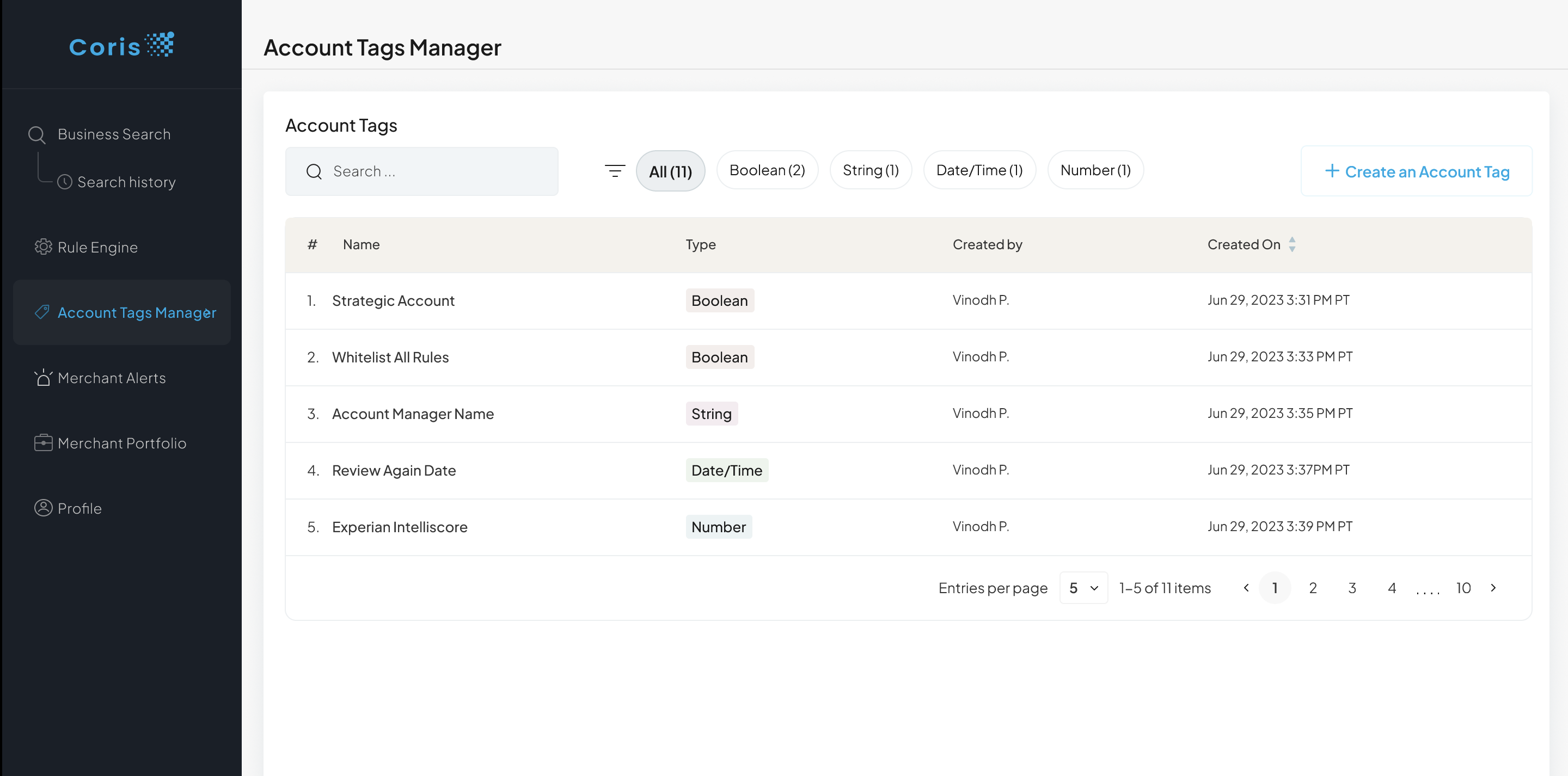Launching Slack Integration
Connect Coris and Slack to deliver real-time risk alerts and structured requests where teams already work, reducing manual handoffs and missed communication.
Coris introduces Account Tags, a flexible way for risk teams to label, segment, and monitor merchant accounts. This new feature enhances risk strategies, reduces false positives, and streamlines account-level reporting and monitoring.
.png)
Coris is building merchant risk infrastructure for leading software companies and payment facilitators. Our customers offer complex services to millions of small businesses, and they need an easy way to segment and keep track of the unique types of merchant activities that arise.
Today, we’re launching account tags to address this gap. Now, risk teams can assign merchant accounts custom tags in order to make their risk strategies much more effective and improve risk reporting and monitoring processes.
At Coris, we gather SMB data based on three tiers of entities: the legal entity, the business establishment, and the merchant account. A legal entity can have multiple business establishments doing business under it. Likewise, a business establishment can have multiple merchant accounts registered with their software platform.
For example, consider a car dealership. A car dealer in southern California will have one legal entity under which it is operating. Within this entity, it might have one or multiple businesses (perhaps for different brands). These businesses, in turn, might have multiple merchant accounts registered with their car dealership software. One account might be for onsite services (like oil changes), another for car parts sold onsite, and another for car parts sold online. Each account tracks different transactions, and thus their risks are unique. Software platforms need an easy way to differentiate between these accounts and monitor special cases in one place.
As mentioned above, merchant accounts carry varying types of risk, but risk teams have traditionally monitored them all in the same way. Typically, risk teams review all accounts in their case management tool on a fixed time basis (e.g. every 90 or 180 days). If an analyst wants to keep track of special reminders or insights about an account, they will track these in a separate spreadsheet or add a reminder in their calendar. This disparate information tracking system opens up the opportunity to miss critical risk signals, lack of continuity in operations, and can allow otherwise preventable forms of fraud to go unnoticed.
Alternatively, some risk teams might request engineers to build out custom tracking capabilities, but this can lead to long lead times and resourcing tradeoffs.
Many customers have pointed out the drawbacks of this disparate tracking process and lack of customization. We decided to build a solution that centralizes account monitoring and offers a flexible, no-code way to develop account labels.
Account Tags allow risk teams to create and assign custom labels to merchant accounts in order to better differentiate and seamlessly monitor different types of activity. Account tags are flexible and highly configurable – analysts can create an unlimited number of account tags across four different data types: boolean (true/false), string (text data), date/time, and number values.

We’re constantly improving our platform to become the one-stop-shop for critical merchant risk infrastructure needs. If you’d like to learn more about Coris or get started with Account Tags, contact us.